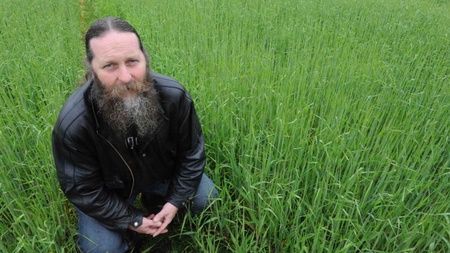Greenhouse gas emissions are accelerating despite efforts at reduction - that is the stark conclusion of a new report by the UN's expert panel on climate change.
Professor Pete Smith of the University of Aberdeen is a convening lead author of the Intergovernmental Panel on Climate Change (IPCC) report, released on Sunday April 13.
The paper shows that global emissions of greenhouse gases have risen to unprecedented levels despite a growing number of policies to reduce climate change.
Emissions grew more quickly between 2000 and 2010 than in each of the three previous decades.
Professor Smith said: “The message is clear from earlier parts of this report, that without swift and strong action, climate change will be extremely damaging and costly.
“In this last instalment of the IPCC report we show that the longer we delay action to tackle climate change, the more expensive the medicine prescribed to deal with climate change becomes, the higher risk of failure, and the wider the range of potential adverse side effects.
“We need to move to global agreements with binding targets for greenhouse gas emission reductions as soon as possible. The science tells us this, so I call on all of our politicians to be brave enough to stand up and make this happen.”
According to the Working Group III contribution to the IPCC’s Fifth Assessment Report, it would be possible, using a wide array of technological measures and changes in behaviour, to limit the increase in global mean temperature to two degrees Celsius above pre-industrial levels.
However it warns that only major institutional and technological change will give a better than even chance that global warming will not exceed this threshold.
The report, entitled Climate Change 2014: Mitigation of Climate Change, is the third of three Working Group reports, which, along with a Synthesis Report due in October 2014, constitute the IPCC’s Fifth Assessment Report on climate change.
Working Group III is led by three Co-Chairs: Ottmar Edenhofer from Germany, Ramón Pichs-Madruga from Cuba, and Youba Sokona from Mali.
Key messages from the IPCC WGIII Report:
- Emissions are rising with increasing economic growth rates and population.
- Urgent action is required to reduce emissions to avoid dangerous climate change.
- The longer we wait the more costly and risky the solutions will be.
- It will require a wide array of technological measures and changes in behaviour to limit the increase in global mean temperature to two degrees Celsius above pre-industrial levels.
- Existing and affordable technologies can substantially reduce greenhouse gas emissions.


